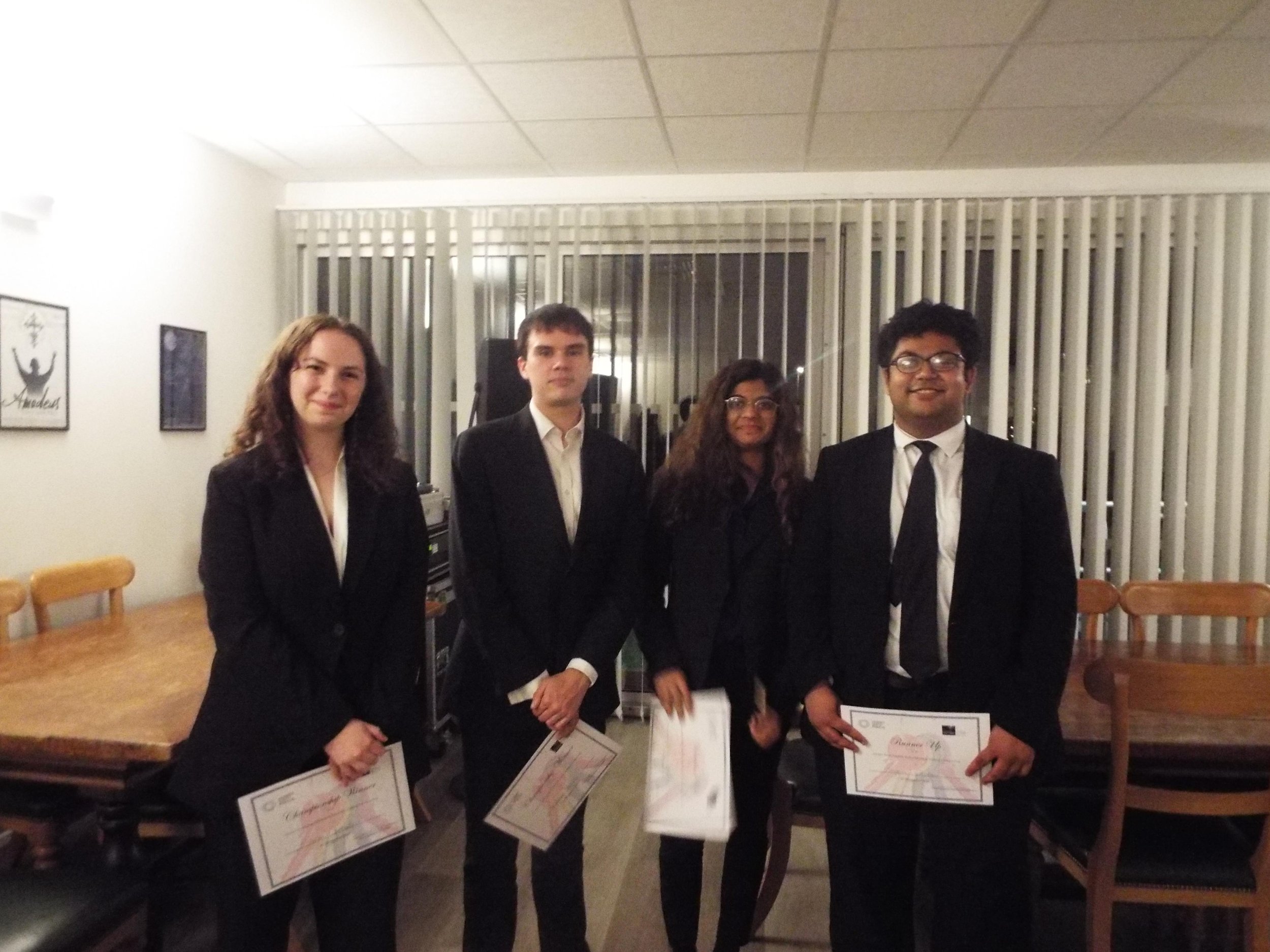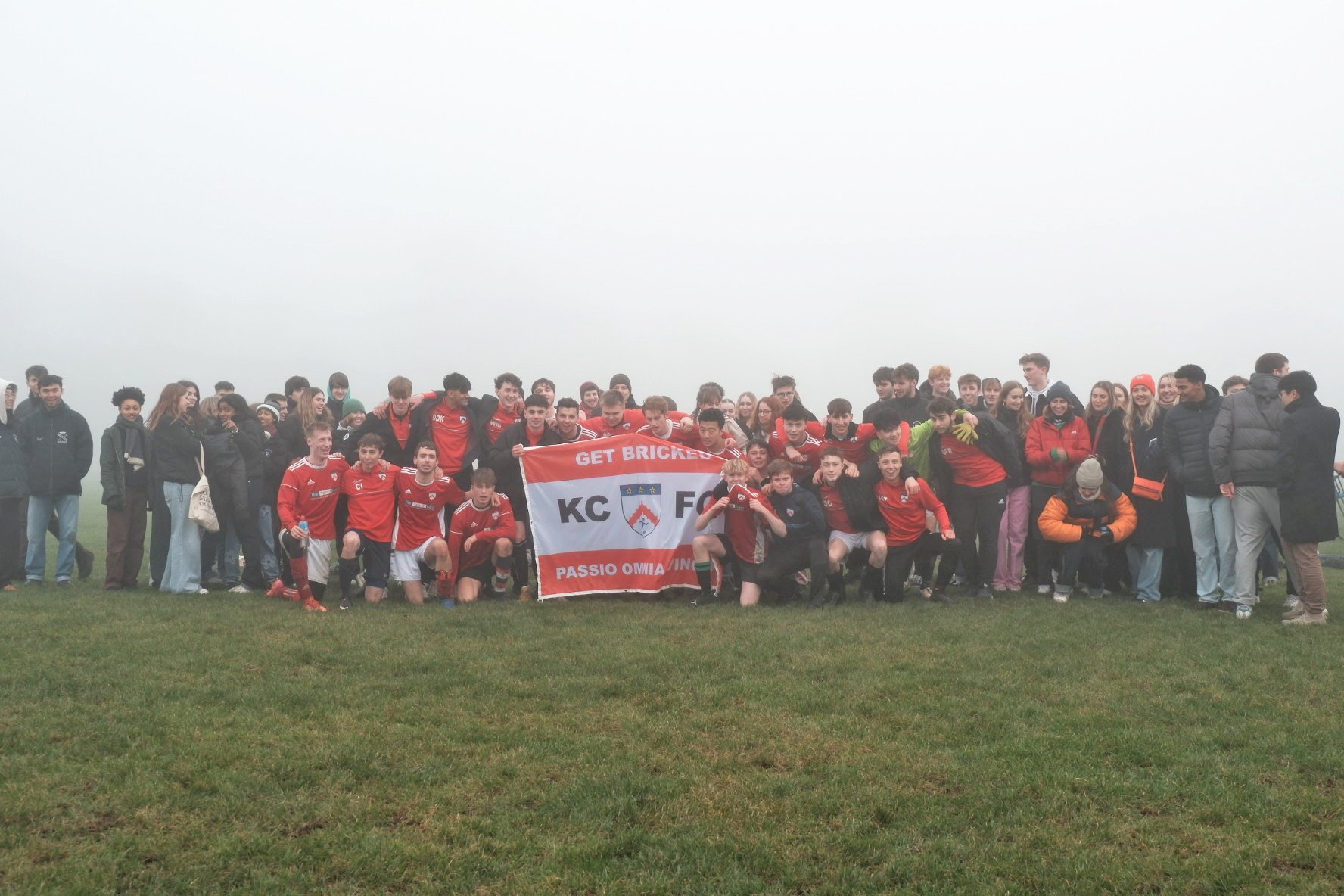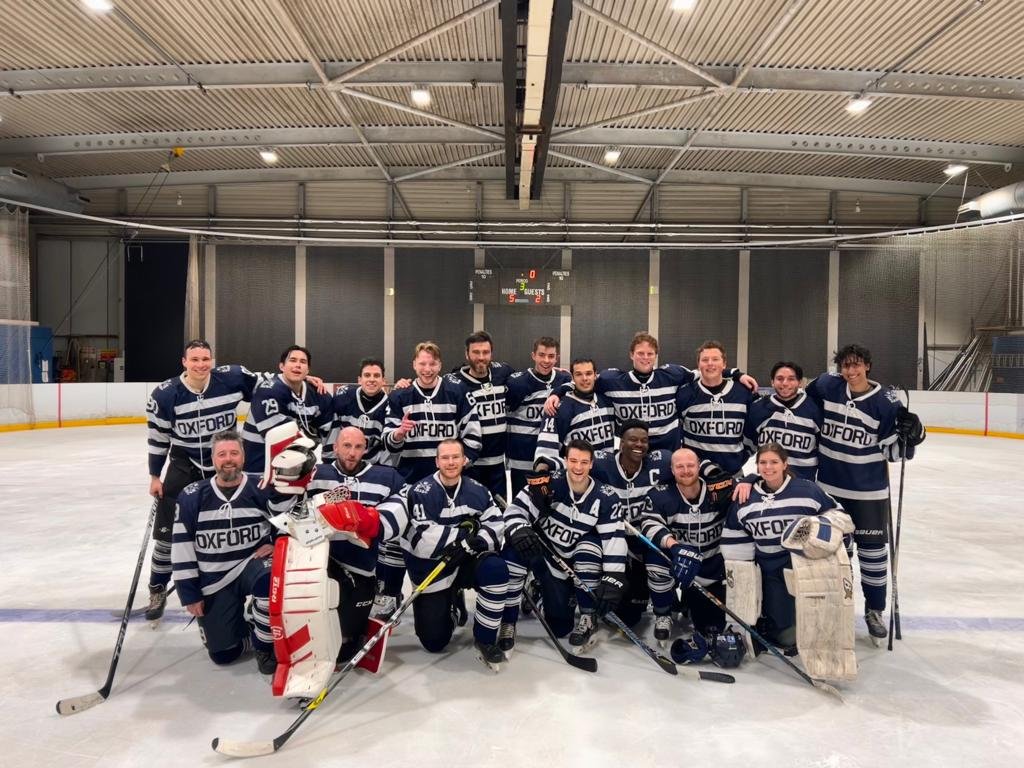Mooting Champions
Isobel, Christopher and other finalists at the dinner, with certificates from Herbert Smith Freehills.
In Michaelmas Term of 2022, Keblites Christopher McHugh (2020 Jurisprudence) and Isobel Salzedo (2021 Jurisprudence) won the Oxford Herbert Smith Freehills Disability Mooting Championship, run by the Faculty of Law and Oxford University Disability Law and Policy Project.
The grand finalists had two days of publicly attended mooting, facing judges from Herbert Smith Freehills, St John's College, Oxford, and Littleton Chambers. There were twenty-four students taking part altogether, with this year’s moot problem being focused on ‘contract law, issues of inequality of bargaining power and unconscionability […] to showcase the intellectually demanding study of disability and the law’.
Isobel Salzedo (former president and current committee member of The Harris Society) explains the process of the competition:
“The Herbert Smith Freehills Disability moot involved us submitting a skeleton to make it through to the oral rounds. We mooted twice in the group round, once as appellants and once as respondents. We were then announced as the winner of our group and so went through to the semi-final. The final took place in front of an audience with three judges and, at the end of the day, we were announced as the overall winners.”
“Everyone involved in the moot had dinner in Trinity College Marquee with representatives from Herbert Smith Freehills. The problem of the moot focused on the difficulty of balancing freedom of contract with ensuring there is some level of protection for vulnerable people involved in contract making. The fictional appellant in the problem was the litigation friend of a woman who suffered from Alzheimer's. She appeared to have been duped by the respondent into selling her artwork at a significant undervalue. When it became clear what happened, she did not send the artwork, and so was sued by the buyer.”
“My point of appeal as senior counsel focused on whether it would need to be proved that the buyer had actual knowledge of the seller's Alzheimer's, or merely ought to have known, given certain evidence that there had been significant signs of the seller's incapacity, in order for the contract to be voidable by the mentally incapacitated party. The law in this area was confused by an obiter comment in the Supreme Court that it was generally accepted that the standard is that 'ought to have known' is sufficient, but the bulk of authority supported the proposition that the buyer needed to have actually known. On this point in the moot, the judges of the final round found for us as the appellants, that it was sufficient if it can be shown that the respondent ought to have known about the appellant's incapacity for the contract to have become voidable by the appellant.”
The Championship is important for bringing to light how the law affects disabled and mentally incapacitated people. Isobel notes:
“I definitely saw that pursuing the principle of freedom of contract with no limitations would cause significant unfairness to those who may be taken advantage of in the contract-making process. If this point ever returned to the Supreme Court in real life, I would be hopeful that they would make the same finding as was made in the final round of the moot: that when someone ought to have known of another's mental incapacitation, any contract made with that person is voidable. As a law student, it can be easy to read about the law through neutral eyes and forget that the balance it strikes between freedom and protection will affect many people. This moot has definitely made me think more critically about how the law may affect those who are vulnerable in society.”









